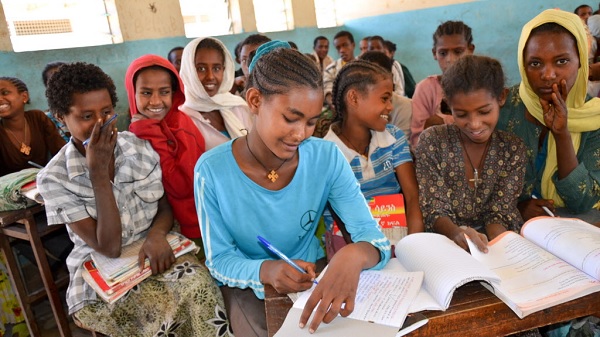
Ethiopia has made major progress to improve women’s rights in recent years, but the east African nation remains among the top 20 countries with the highest rates of child marriage.
By Omar Dabbagh (SBS News)
The problem of child marriages is still prevalent around the world, even in countries making major progress to improve women’s rights.
One such country is Ethiopia, where 40 per cent of girls are married before their 18th birthday. Twenty per cent of girls are married before turning 15.
Zeru Fantaw is the child protection program lead for aid agency, Plan International. Speaking to SBS News in Ethiopia, he says the practice of child marriage is rampant in the country – particularly in rural areas – and is perpetuated by gender inequality and tribal traditions.
“Child marriage is a very serious problem because it is age-long,” Mr Fantaw told SBS News.
“For centuries, the community was practicing child marriage for different reasons; it’s going to be economic, it’s going to be social, or traditions, so the community were highly practicing this issues.”
Child marriage: An ongoing illegal practice
Child marriage is illegal in Ethiopia, with the government announcing in 2014 that it would eliminate the practice by 2025. But Mr Fantaw believes that won’t be possible, until girls across Ethiopia are supported to stay in school.
He says the implementation of laws and policies against child marriage are “very poor”.
“It has a number of impacts against the girls, in relation to with health, in relation to with education, there are a number of issues,” Mr Fantaw said.
“When girls are able to stay at school for a longer period of time, their resilience behavior is increasing. And they start to say no for this kind of practice.”
Rate reducing, but still rampant
Aid agencies are spread across Ethiopia in a bid to reduce the rate of child marriage. And there have been some improvements, with the rate dropping from 60 per cent to 40 per cent over the past decade.
Mr Fantaw explains that a significant problem is communities resuming the practice once agencies have left the area.
“The effort is still not that much effective. Children are suffering by this early marriage, and this early marriage issues has a number of negative impacts against the best interests of the girls.”
Read the complete story at SBS News
